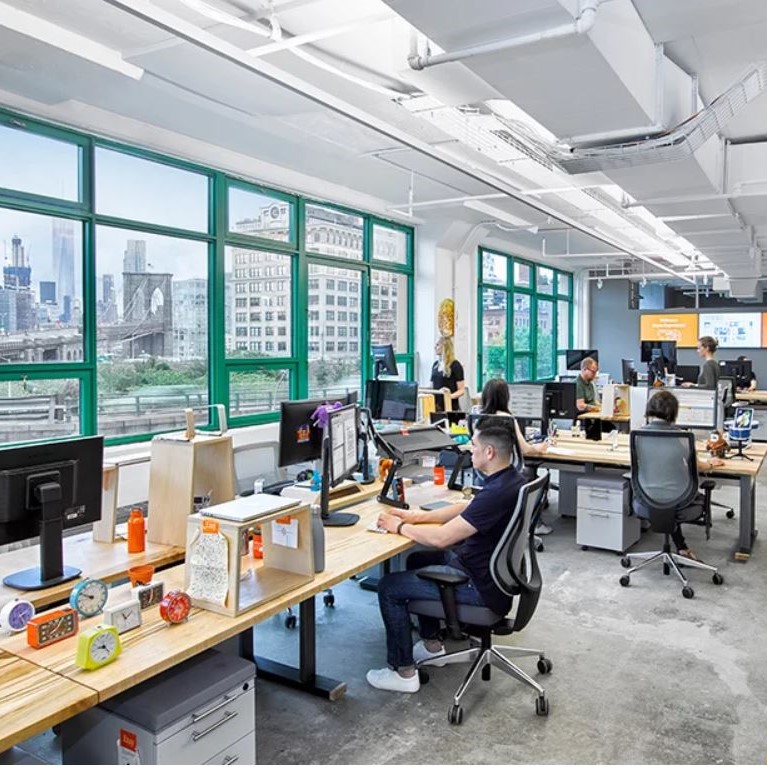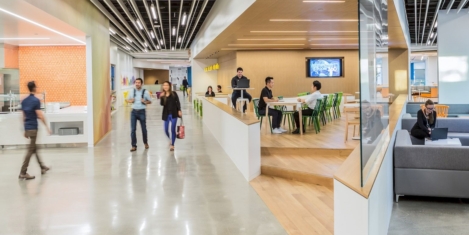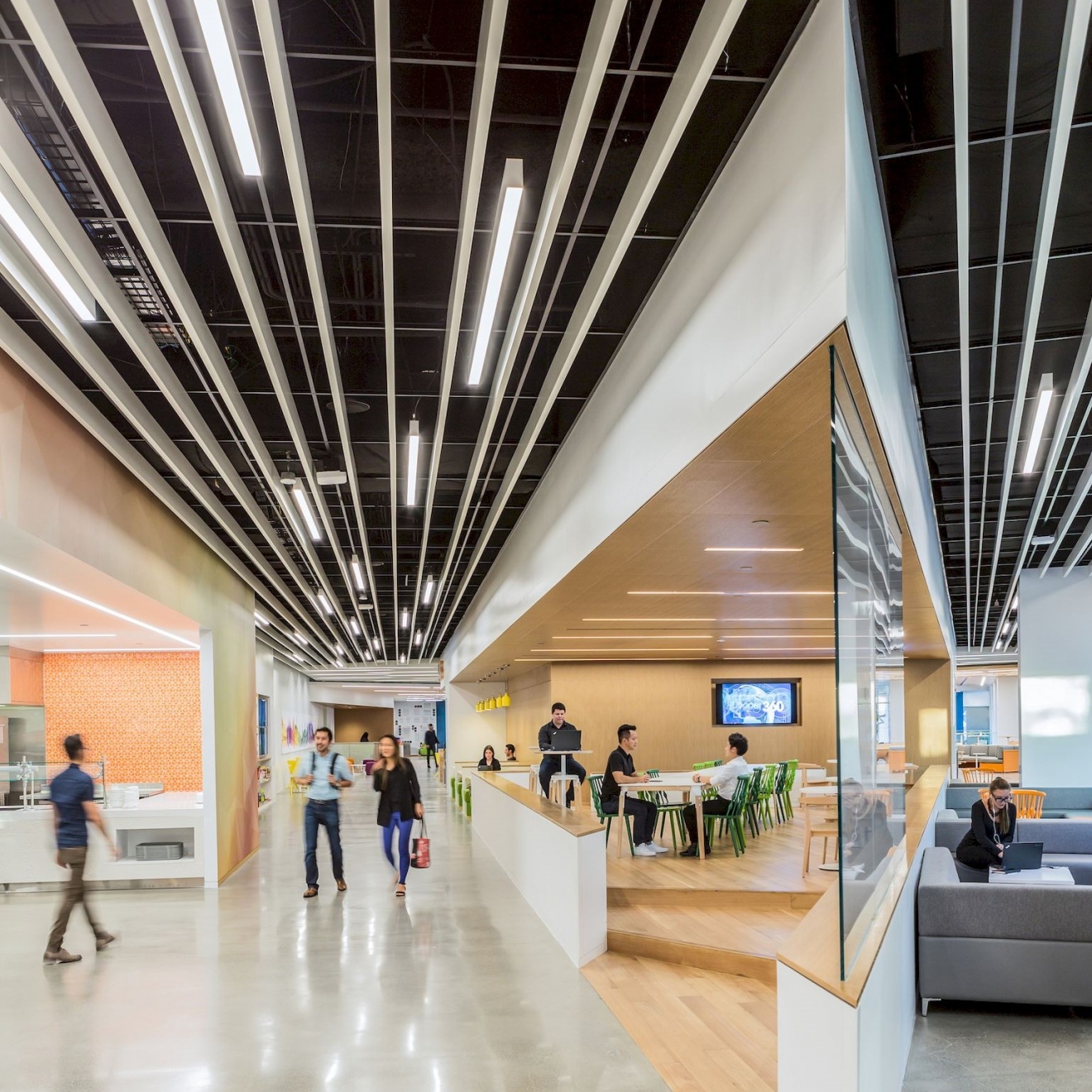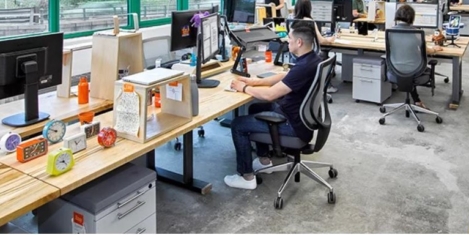October 30, 2019
Search Results for: productivity
October 29, 2019
Remote working key to winning the battle for talent
by Neil Franklin • Flexible working, News
 According to a new study conducted by the Centre of Economics and Business Research (Cebr) with support from Citrix Systems, Inc., companies that leverage technology to enable flexible and remote working models can not only attract talent, but increase employee engagement and productivity, potentially boosting the US economy by as much as $2.36 trillion a year. Through an online survey of more than 2,500 US knowledge workers conducted in July, the Cebr study sought to determine the potential value to the US economy of the adoption of a more widespread, flexible working culture. It claims that in offering virtual/remote work options and providing the tools to enable them, companies can better compete in the battle for talent by dipping into untapped pools of workers. (more…)
According to a new study conducted by the Centre of Economics and Business Research (Cebr) with support from Citrix Systems, Inc., companies that leverage technology to enable flexible and remote working models can not only attract talent, but increase employee engagement and productivity, potentially boosting the US economy by as much as $2.36 trillion a year. Through an online survey of more than 2,500 US knowledge workers conducted in July, the Cebr study sought to determine the potential value to the US economy of the adoption of a more widespread, flexible working culture. It claims that in offering virtual/remote work options and providing the tools to enable them, companies can better compete in the battle for talent by dipping into untapped pools of workers. (more…)
October 28, 2019
A synaesthetic approach to office design
by Ian Poupart • Comment, Workplace design
 Synaesthesia is a condition in which one type of sensory stimulus triggers an involuntary stimulus of another sense. Being able to hear colour or taste numbers might seem like a unique party piece, but some research indicates it’s an ability we’re all born with. (more…)
Synaesthesia is a condition in which one type of sensory stimulus triggers an involuntary stimulus of another sense. Being able to hear colour or taste numbers might seem like a unique party piece, but some research indicates it’s an ability we’re all born with. (more…)
October 25, 2019
How office design trends in different countries feed off each other
by Steve Elliott • Comment, Workplace design
 The term Global Village has passed into general use to describe many of the phenomena we associate with the modern globalised world. But it actually dates back to 1962 when coined by Marshall McLuhan to describe an emerging, electronically contracted world in which cultures converge alongside political, business and legislative frameworks. These forces have been instrumental in bringing nations and organisations closer together and yet each nation continues to be shaped by little differences and residual cultures and conditions. (more…)
The term Global Village has passed into general use to describe many of the phenomena we associate with the modern globalised world. But it actually dates back to 1962 when coined by Marshall McLuhan to describe an emerging, electronically contracted world in which cultures converge alongside political, business and legislative frameworks. These forces have been instrumental in bringing nations and organisations closer together and yet each nation continues to be shaped by little differences and residual cultures and conditions. (more…)
October 25, 2019
The push and pull of the workplace for parents
by Neil Franklin • News, Workplace
 The experiences and attitudes of working parents are explored in two new reports which offer contrasting views on what happens to the careers and skills of mothers and fathers. The first from CWJobs uncovers the fears parents have of being left behind by technology while they take time away from their careers to care for children, while the second looks at the ways in which parenthood might improve people’s skills and ability to deal with complex roles. (more…)
The experiences and attitudes of working parents are explored in two new reports which offer contrasting views on what happens to the careers and skills of mothers and fathers. The first from CWJobs uncovers the fears parents have of being left behind by technology while they take time away from their careers to care for children, while the second looks at the ways in which parenthood might improve people’s skills and ability to deal with complex roles. (more…)
October 23, 2019
Firms not meeting the needs of a growing flexible workforce
by Neil Franklin • Flexible working, News
 A new report claims that US based businesses are not addressing the needs of an increasingly “deskless workforce” which thinks flexible working is a right that should be valued more than other benefits. The Future is Flexible: A New Workforce Paradigm Evolving From the Gig Economy (registration) from Quinyx compiles publicly available data alongside a survey of more than 4,000 employed Americans over the age of 18. It claims that, behind wages, flexibility is one of the most important factors of happiness at work for this growing flexible workforce, higher than health benefits, culture, and employee discounts. (more…)
A new report claims that US based businesses are not addressing the needs of an increasingly “deskless workforce” which thinks flexible working is a right that should be valued more than other benefits. The Future is Flexible: A New Workforce Paradigm Evolving From the Gig Economy (registration) from Quinyx compiles publicly available data alongside a survey of more than 4,000 employed Americans over the age of 18. It claims that, behind wages, flexibility is one of the most important factors of happiness at work for this growing flexible workforce, higher than health benefits, culture, and employee discounts. (more…)
October 22, 2019
Many flexible office users would prefer to work in conventional space
by Mark Eltringham • Coworking, News, Property
 Joint-research from Gensler and the British Council of Offices (BCO) on the rise of flexible workspace in the UK corporate sector claims that 40 percent of flexible office users would rather work from a conventional office. According to the report, while the future of coworking is increasingly being explored as part of academic and industry research, there has been limited focus on what it means for large corporate occupiers. The 2019 Rise of Flexible Workspace in the Corporate Sector Report (choir members only) aims to identify the drivers of and the barriers to – the use of flexible space and coworking by large corporate occupiers. (more…)
Joint-research from Gensler and the British Council of Offices (BCO) on the rise of flexible workspace in the UK corporate sector claims that 40 percent of flexible office users would rather work from a conventional office. According to the report, while the future of coworking is increasingly being explored as part of academic and industry research, there has been limited focus on what it means for large corporate occupiers. The 2019 Rise of Flexible Workspace in the Corporate Sector Report (choir members only) aims to identify the drivers of and the barriers to – the use of flexible space and coworking by large corporate occupiers. (more…)
October 21, 2019
Menopause at work addressed in new CIPD manifesto
by Jayne Smith • News, Wellbeing
To help ensure women get the right support when going through the menopause transition, necessary public policy measures need to be put in place and the subject should be discussed openly in organisations, according to the CIPD which has published a manifesto for menopause at work at an event at the Houses of Parliament. (more…)
October 18, 2019
Making flippy floppy with the meaning of work
by Mark Eltringham • Features, Wellbeing, Workplace design
 Great news! No, not the Brexit deal but the reports that the US has replaced the floppy disks it uses to store the information about its nuclear arsenal with something a bit less Nineties. If nothing else, a useful reminder that even the people responsible for a potential Armageddon might not be quite on board for the Fourth Industrial Revolution just yet, and are still coming to terms with the Third. (more…)
Great news! No, not the Brexit deal but the reports that the US has replaced the floppy disks it uses to store the information about its nuclear arsenal with something a bit less Nineties. If nothing else, a useful reminder that even the people responsible for a potential Armageddon might not be quite on board for the Fourth Industrial Revolution just yet, and are still coming to terms with the Third. (more…)
October 17, 2019
People spend more time than you think repeating completed tasks
by Neil Franklin • AI, News, Technology
 A new global study of more than 10,000 office workers, claims that British workers spend a whole month a year (30 days) doing work that a colleague has already completed. Five hours and 5 minutes a week is spent duplicating work. Asana, the publisher of the Anatomy of Work Index (registration) also claims that Brits aren’t spending as much time on the actual work that they’re hired to do.
A new global study of more than 10,000 office workers, claims that British workers spend a whole month a year (30 days) doing work that a colleague has already completed. Five hours and 5 minutes a week is spent duplicating work. Asana, the publisher of the Anatomy of Work Index (registration) also claims that Brits aren’t spending as much time on the actual work that they’re hired to do.
October 16, 2019
Getting to grips with workplace safety
by Alex Wilkins • Comment, Wellbeing
 Business owners can not shy away from ensuring the physical safety of their employees in the workplace. Despite this, many are still failing to have the correct measures in place to best achieve the necessary safety levels that will allow them to operate effectively and without disruptions. (more…)
Business owners can not shy away from ensuring the physical safety of their employees in the workplace. Despite this, many are still failing to have the correct measures in place to best achieve the necessary safety levels that will allow them to operate effectively and without disruptions. (more…)



























October 28, 2019
The key to wellbeing at work is focusing on the individual
by Jonathan Hindle • Comment, Wellbeing, Workplace design
(more…)